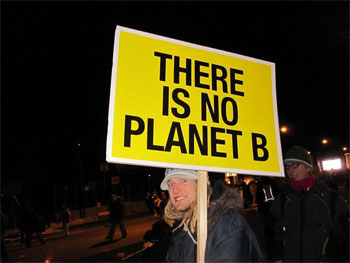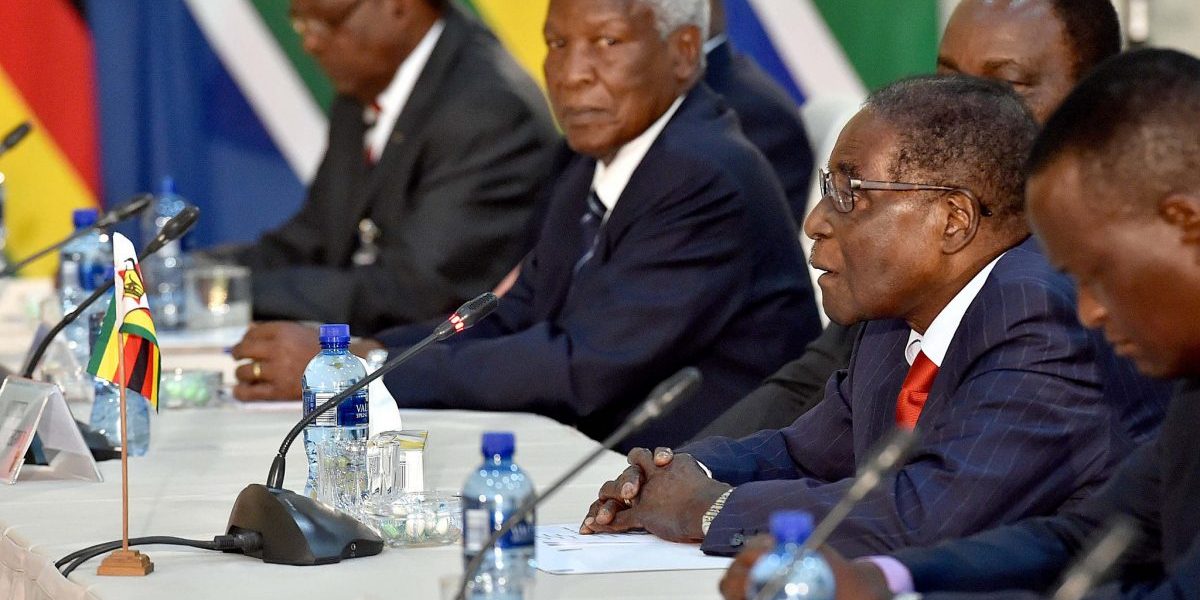This event, dubbed ‘the African COP’, represents an opportunity for the continent to heighten its presence in the current multilateral system and influence the decision-making processes. To do this, South Africa needs to consolidate its own competing national priorities and interests with those of its region and work alongside AU member states to help strengthen their common voice.
Since 2009, the Africa Group has tried to use its collective bargaining weight to influence international processes and to encourage the re-examination of contemporary conceptual and theoretical frameworks. In many cases, the increased capacity, enhanced diplomatic capital and mobilisation of developing countries have influenced climate change negotiations, successfully demanding more equitable structures of environmental governance. However, the African countries’ ability to mould the climate change agenda is still limited – and in many respects this mirrors the stereotypical division between industrialised and developing economies.
The 54-member bloc, which holds 36% of UN membership, needs to further harmonise its position in order to gain real political clout in international negotiations. However, the Africa Group itself is divided by varying national priorities, defined by the respective population sizes; geography; economy composition and emissions profiles of the countries involved. The challenges of climate change are felt locally, and the countries respond according to their national circumstances.
For example, Algeria, Angola, Libya and Nigeria, members of the Organisation of Petroleum-Exporting Countries (OPEC), focus primarily on response measures, concerned that any decrease in the use of petroleum products and increased investment in renewable energies will have a negative impact on oil-exporting countries. Small Island Developing countries (SIDs) are experiencing climate impacts now and seek urgent adaptation and disaster risk management solutions, while South Africa is a major carbon emitter that faces pressure to overhaul its energy sector in an attempt to move away from its dependency on coal.
The UN-led programme to Reduce Emissions from Deforestation and Forest Degradation (REDD) is an effort to create financial value for the carbon stored in forests, offering incentives for developing countries to reduce emissions from forested lands and invest in low-carbon paths to sustainable development. The discussions on REDD+ (which includes the role of conservation, sustainable management of forests and enhancement of forest carbon stocks) and agriculture are essential to the negotiating positions of Central Africa.
So, too, is adaptation, as the countries located nearest to the equator will experience the worst impacts of climate change. Given such divergent national interests, as well as different capabilities and negotiating skills, the African Group is not always coordinated in its approach – especially in pressurised circumstances. Preparations are underway to manage the various factions, lead by the Group’s Chair, Tosi Mpanu-Mpanu from the DRC.
At a multilateral level, South Africa can use its leadership position to champion countries to support the African agency. In 2009, South Africa joined the BASIC alliance. Although fragmented in their individual outlooks and with very different economic capabilities, South Africa views Brazil, India and China as increasingly important partners, most notably for their strong united voice around the developmental impacts of climate change. The South African government uses the BASIC alliance as an additional platform to uphold and promote the interests of the African continent and to influence the process from within.
This has long been part of South Africa’s strategic approach to foreign policy. South Africa makes use of international institutions (the UN, the WTO, IBSA and BRICS) to increase its voice and visibility on the global stage, since they provide opportunities for grandstanding as well as for devising positions based on shared interests, values and capabilities. It also balances its interests, partners and alliances as a means of softening any perception that it may be working against its key foreign policy partners, building legitimacy for South Africa within the rest of Africa.
The country’s role in burgeoning ‘club diplomacy’ groups raises important questions about how South Africa is perceived by its region and whether its diplomatic and political communities are really promoting the idea of an ‘African COP’ that is fair and equitable for the continent and, more broadly, for the developing world at large. Critics have questioned the country’s real priorities – especially given its already overburdened agenda and lack of resources to deliver on all its promises. Clearly there is a need for South Africa to use its limited resources judiciously and strategically, to prioritise carefully, consult widely, build trust, be open to suggestions, respond flexibly and be firm in decision-making.

The South African government will present its COP17 strategy to the cabinet in October. This document will be an essential tool to communicate how ‘Team South Africa’ intends to uphold its national interests while delivering on an ambitious global agenda.
This document will also help manage the expectations of the international community and provide an assessment of what can realistically be achieved at COP17.
South Africa seems aware of the necessity of further including civil society and businesses in its national processes as well as in its COP strategy. In 2009, 50,000 people protested on the streets of Copenhagen, criticising the Danish conference for not being inclusive. In Cancún, civil society continued to mobilise but was less visible. In response, the South African government has initiated public climate change outreach and mobilisation programmes that include youth development as well as extensive media training.
South Africa has also included local business in its ‘greening framework’, planning to use local initiatives to offset carbon emissions and create a sustainable legacy in Durban.
Aware of past COP failures in Cancún and Copenhagen, South Africa will have to highlight transparency, multilateral action and inclusiveness in its approach. It must also think carefully about how it is going to position itself and what diplomatic tactics and strategies it should employ to prepare for the event and move the debate forward, especially with regards to untangling some of the current international geopolitical divisions threatening to upset the process.








